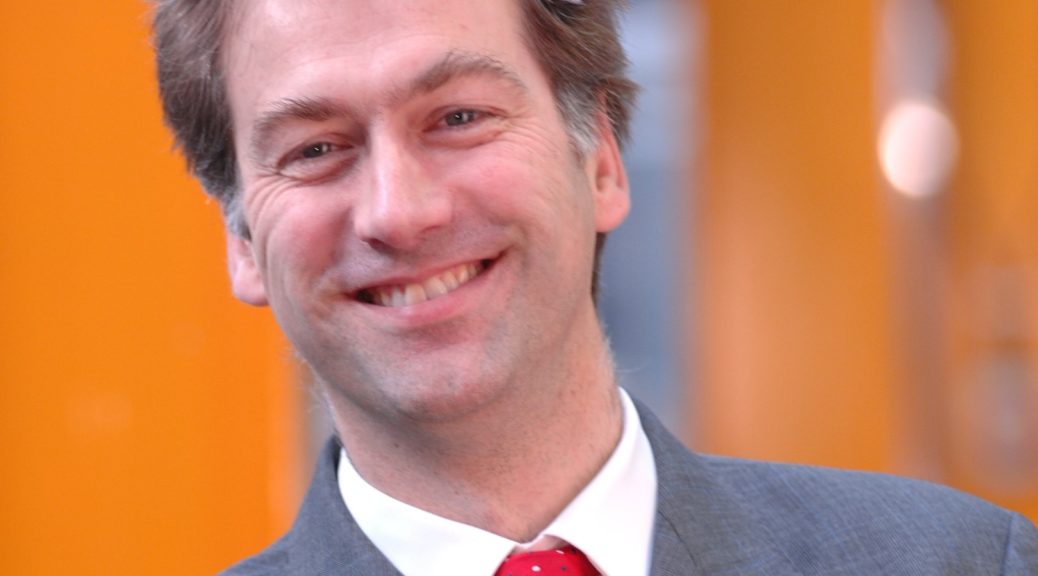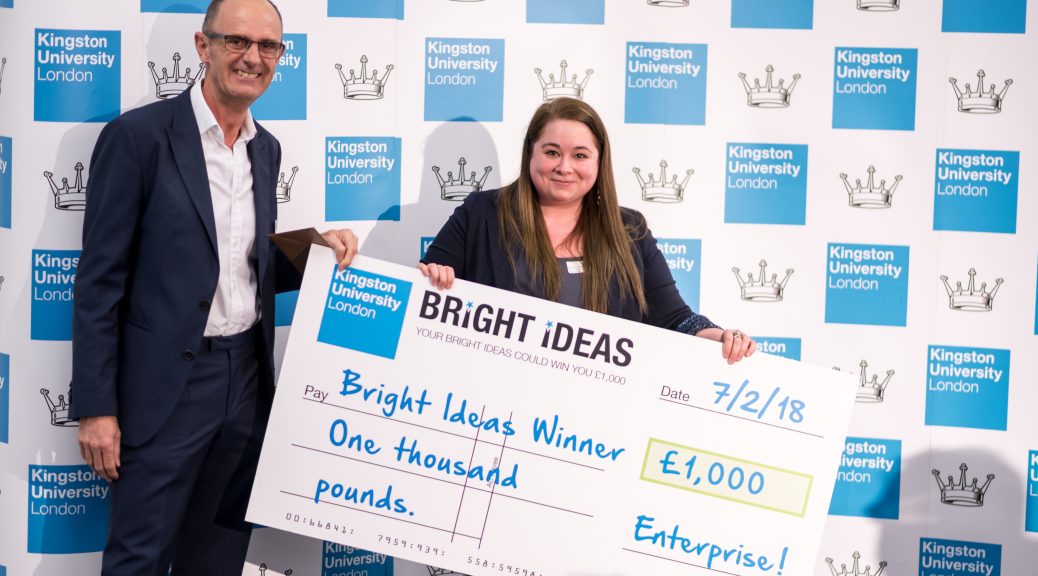
We are delighted to announce the winners of our Mentor30Engineers Competition. To mark the 30th anniversary of the Sainsbury Management Fellows Scholarship scheme, we launched Mentor30Engineers to give engineers the opportunity to be mentored by a Sainsbury Management Fellow (SMF) for up to 30 hours over 3 years of their university study or early career.
We challenged student and qualified engineers to create brand new ideas to solve some of society’s toughest problems across five areas – the environment, healthcare, social care, financial planning and corporate taxation. This was a no-holds-barred competition – there were no constraints on entrants’ thinking; we were seeking bold, imaginative ideas.
We were not disappointed – the judges were impressed with the blue sky thinking of 14 candidates who have all be awarded 30 hours of mentoring from a Sainsbury Management Fellow (SMFs). SMFs are professional engineers and highly-experienced business leaders who are passionate about mentoring young engineers to help them fulfil their career ambitions and to go on to develop solutions to challenging problems.
Here, we showcase the winners: five graduate engineers from the Universities of Sheffield, Southampton, Nottingham and Bath, and nine undergraduate engineers from Imperial College London and the Universities of Loughborough, Warwick, Bristol and Durham.
| Winner |
Course/Job Title |
University/Company |
| Fejiro Amam |
Mechanical Engineering |
Loughborough |
| Vivek Babu |
MEng, Manufacturing and Mechanical Engineering |
Warwick |
| Leah Edwards |
MEng, Mechanical Engineering |
Loughborough |
| Daniella Franklin |
MEng, Product Design Engineering |
Loughborough |
| Alberto Garcia Matachana |
MEng, Electrical and Electronics Engineering |
Imperial College |
| Adam Honnywill |
Engineering Design with Study in Industry |
Bristol |
| Ben Kelley |
Tunnel Engineer |
Ove Arup & Partners |
| Flavia Villarroel |
MSc in Sustainable Energy and Entrepreneurship |
Nottingham |
| Areeb Siddiqi |
PhD in Chemical Engineering |
Bath |
| Francesco Zeneli |
Engineering Design |
Bristol |
| Alan Middup |
International Graduate Trainee |
Halma plc |
| Matt Parkes |
Mechanical Engineering |
Loughborough |
| James Rogers |
Stress Engineer |
Rolls Royce |
|
|
|
A summary of each winner’s essay is featured below, with the full essays being available as PDF downloads.
 Fejiro Amam is a first-year BEng Mechanical Engineering (Hons) student at Loughborough University. He hopes to use the mentorship with SMF Conor Hanley, Director at Biancamed to gain as much insight as possible into the world of business and engineering and obtain the skills required to succeed in the industry.
Fejiro Amam is a first-year BEng Mechanical Engineering (Hons) student at Loughborough University. He hopes to use the mentorship with SMF Conor Hanley, Director at Biancamed to gain as much insight as possible into the world of business and engineering and obtain the skills required to succeed in the industry.
Essay Synopsis – Reducing hospital waiting times: Fejiro’s idea is implemented by having a central operating system which manages the affairs of the hospital and controls transmission of data to various personnel in the hospital. As soon as an injury occurs, data is collected by a paramedic or the person reporting the incident and used to build a patient profile which the operating system communicates to the relevant hospital departments and personnel depending on the severity and type of the injury, so that the hospital is ready to receive the patient even before his or her arrival; thereby significantly reducing the waiting time at the hospital. Read full essay
 Vivek Suresh Babu is currently a second-year undergraduate at the University of Warwick studying Manufacturing and Mechanical Engineering (predicted first class). He has secured a summer internship at Rolls-Royce in Civil Aerospace Manufacturing Engineering. He has also been nominated to study abroad in Singapore for the third year of his MEng degree. Vivek plans to use the mentoring opportunity with SMF Nikhil Amin, Head of Amazon Business UK, Marketplace, to acquire business acumen and develop leadership skills. He hopes to work in consulting in the future, with a focus on strategy and operations.
Vivek Suresh Babu is currently a second-year undergraduate at the University of Warwick studying Manufacturing and Mechanical Engineering (predicted first class). He has secured a summer internship at Rolls-Royce in Civil Aerospace Manufacturing Engineering. He has also been nominated to study abroad in Singapore for the third year of his MEng degree. Vivek plans to use the mentoring opportunity with SMF Nikhil Amin, Head of Amazon Business UK, Marketplace, to acquire business acumen and develop leadership skills. He hopes to work in consulting in the future, with a focus on strategy and operations.
Essay Synopsis –Food waste and supply-chain optimisation enhancing production efficiencies via agriculture 4.0 and digital farming: Vivek suggested that farmers in developing countries should make use of Agriculture 4.0 technologies; crop production efficiencies would increase, consequently decreasing the volume of waste at the start of the supply-chain. He devised a strategy where drones, smart sensors, AI and data analytics could be combined to create an automated supply-chain. Through digital farming, profits are maximised for both producers and retailers, while negative environmental effects (ie amount of fuel, water and pesticide used) are reduced. Read full essay
 Leah Edwards is studying for a MEng Mechanical Engineering at Loughborough University, to graduate in 2019. She looks forward to working with her mentor SMF Simon Hughes, who is Chief Commercial Officer of Green Energy Options, and hopes to benefit from his guidance on professional development and advancement to help achieve her future business aspirations.
Leah Edwards is studying for a MEng Mechanical Engineering at Loughborough University, to graduate in 2019. She looks forward to working with her mentor SMF Simon Hughes, who is Chief Commercial Officer of Green Energy Options, and hopes to benefit from his guidance on professional development and advancement to help achieve her future business aspirations.
Essay Synopsis – Protecting the environment for the future: Leah proposes a carbon emissions labelling system for food packaging. She came up with the idea as she struggled to compare the impact of different foods on the environment, believing that access to the data would allow the consumer to make a more informed choice. In addition, she speculates that with veganism becoming more mainstream, people are increasingly aware of the environmental impact of their diet and that carbon emissions labelling would help the message reach a wider audience. It would also hold food companies accountable for their carbon footprint across the supply chain and encourage innovation in this area. Read full essay
 Daniella Franklin is due to graduate from Loughborough University in the summer of 2018 with a degree in MEng Product Design Engineering, she is also a current participant in the International Engineering UNITECH program. She intends to use her mentoring with SMF Busola Banjo, CEO* Program Associate at Siemens, to discover how she values herself as an engineer and to gain a better understanding of her future career opportunities.
Daniella Franklin is due to graduate from Loughborough University in the summer of 2018 with a degree in MEng Product Design Engineering, she is also a current participant in the International Engineering UNITECH program. She intends to use her mentoring with SMF Busola Banjo, CEO* Program Associate at Siemens, to discover how she values herself as an engineer and to gain a better understanding of her future career opportunities.
Essay Synopsis – Meeting the care needs of an ageing population: Daniella’s proposal highlights a potential idea that could help society with the care needs of the older growing population. The idea focuses on finding a way to engage the older population of over 80s with the retired population aged between 65 – 79 years. The unclaimed capital that the retired population possess is being wasted, by developing a platform that helps connect the older generations over common interests will help claim some of the capital lost in the retired population. This is because their time will be spent helping the older population and themselves stay mentally healthier for longer through social interactions. The idea is to develop a national platform that the older generations can use safely on a local level. The platform uses a specially design algorithm to virtually connects people together, based on common interests or hobbies and their proximity to each other. This platform provides a way to easily gather data on the older population which can be used by the government to better understanding the needs of these populations. Read full essay
 Alberto Garcia Matachana is a MEng Electrical and Electronic Engineering undergraduate at Imperial College London. Alberto’s dream is to have his own company in the future. His technical knowledge is getting shaped step by step at Imperial, so he will take advantage of his mentoring with SMF Adam Bazire, Director at RAMSO to broaden his business discipline knowledge which will help him achieve his dream.
Alberto Garcia Matachana is a MEng Electrical and Electronic Engineering undergraduate at Imperial College London. Alberto’s dream is to have his own company in the future. His technical knowledge is getting shaped step by step at Imperial, so he will take advantage of his mentoring with SMF Adam Bazire, Director at RAMSO to broaden his business discipline knowledge which will help him achieve his dream.
Essay synopsis – Tackling/reducing hospital waiting times: Alberto’s idea makes use of blockchain technology for reducing the NHS’s waiting times. To tackle the problem, each patient will have a persistent ID on the blockchain containing their personal information and medical record. On the other hand, the NHS would record the type and number of possible interventions within a specific period. Interestingly we can connect different blockchain networks to build a new one. This ultimate ledger would contain the surgery order (i.e. waiting list). This system, apart from offering security and privacy due to blockchain’s decentralised nature, it will also bring impartiality since anyone trying to corrupt the waiting list would need to do a considerable amount of triangulating of data. Read full essay.
 Adam Honnywill is an undergraduate at the University of Bristol, studying MEng Engineering Design with Study in Industry. He looks forward to his mentoring with SMF Simon Fowles, BT, to explore career options and gain insight on industry engineering practices.
Adam Honnywill is an undergraduate at the University of Bristol, studying MEng Engineering Design with Study in Industry. He looks forward to his mentoring with SMF Simon Fowles, BT, to explore career options and gain insight on industry engineering practices.
Essay Synopsis – Heaven on earth – virtual retirement: Adam’s essay is an extrapolation of cutting-edge technology; a futuristic idea that the elderly can inhabit virtual realities to solve the issues associated with an ageing population. Whereas present-day solutions to these issues have heavy costs to society or provide inadequate care to the elderly, Adam outlines a radical solution that both cuts costs and improves the elderly’s care. Read full essay.
 Ben Kelley graduated from the University of Southampton in 2015 with a first class honours degree in MEng Civil Engineering, and is now a tunnel engineer at Ove Arup & Partners in London. He intends to use his mentoring with SMF Peter Young, a Director at Arup, to develop his engineering career and consider options for a business education to achieve his leadership potential.
Ben Kelley graduated from the University of Southampton in 2015 with a first class honours degree in MEng Civil Engineering, and is now a tunnel engineer at Ove Arup & Partners in London. He intends to use his mentoring with SMF Peter Young, a Director at Arup, to develop his engineering career and consider options for a business education to achieve his leadership potential.
Essay Synopsis – Ensuring major corporations pay their fair share of taxes: Ben’s proposes that we collect corporation tax on a firm’s UK profits, calculated by multiplying UK revenue (£) by global profitability (%). He identified that the growing digital economy makes assigning revenues to a geographic region very difficult and therefore proposed government licenses to mine data from UK citizens, in the same way as traditional mining of raw materials. In addition, he discussed if the data residency of servers could be used as a geographic basis for taxation, highlighting that this could create tax havens for data centres. Read full essay.
 Areeb Siddiqi graduated from the University of Bath in 2017 with a first class honours degree in MEng Chemical Engineering, and will be starting his PhD in Chemical Engineering in October at Bath. He intends to use his mentoring with SMF Simon Bonini (Consultant at Muse, Stancil & Co), to discuss how to combine his technical skill-set with industrial awareness.
Areeb Siddiqi graduated from the University of Bath in 2017 with a first class honours degree in MEng Chemical Engineering, and will be starting his PhD in Chemical Engineering in October at Bath. He intends to use his mentoring with SMF Simon Bonini (Consultant at Muse, Stancil & Co), to discuss how to combine his technical skill-set with industrial awareness.
Essay Synopsis – Protecting the environment – rising population creating an ever-growing need: Areeb’s idea to protect the environment from the ever-growing need of a rising population is to create a new production methodology for non-toxic and more environmentally-friendly surfactant chemicals, by pairing computational modelling with experimental validation via synthesis and toxicity analysis. He noted that differences in results between the simulations and laboratory testing is commonly due to limitations in the former. He proposed that collaborative work between leading academics should be encouraged, where experimental validation from one department can feedback to a team working on the novel simulation methodology. The results would form a database relating surfactant structures with toxicity. Read full essay.
 Francesco Zeneli began studying Engineering Design at the University of Bristol in 2017. Francesco is looking forward to working with his mentor SMF Henning von Spreckelsen, Chief Executive at Shere Investment, to learn about entrepreneurship which he believes is one way to make a big impact on people’s lives for the better. He hopes to learn what it takes to create a successful start-up.
Francesco Zeneli began studying Engineering Design at the University of Bristol in 2017. Francesco is looking forward to working with his mentor SMF Henning von Spreckelsen, Chief Executive at Shere Investment, to learn about entrepreneurship which he believes is one way to make a big impact on people’s lives for the better. He hopes to learn what it takes to create a successful start-up.
Essay Synopsis – Tackling hospital waiting times: A way of solving the increase of waiting times in the NHS would be incorporating artificial intelligence and robots into hospitals. Artificial intelligence can analyse the patient’s medical records and alert doctors when a disease is in its initial stages, so it will be easier to treat therefore saving time. Robots can support doctors or nurses by treating patients with minor issues leaving staff to help people in need of more urgent attention. Read full essay.
 Alan Middup graduated from the University of Sheffield with a first class honours degree in MEng Mechanical Engineering and is now a graduate trainee at Halma plc, a FTSE100 technology company. He intends to use his mentoring with SMF Mike Astell, Director, Furness Petroleum to pursue chartership, discuss career options postgraduate scheme and identify potential opportunities in the energy industry.
Alan Middup graduated from the University of Sheffield with a first class honours degree in MEng Mechanical Engineering and is now a graduate trainee at Halma plc, a FTSE100 technology company. He intends to use his mentoring with SMF Mike Astell, Director, Furness Petroleum to pursue chartership, discuss career options postgraduate scheme and identify potential opportunities in the energy industry.
Essay Synopsis – Value from waste – a data-driven solution: Alan’s proposal aims to tackle the global plastic waste problem by assigning value to waste via type and location data, and creating a digital marketplace to match demand with supply. Data relating to types and amounts of plastic would be stored in a product’s barcode and added to a consumer’s app-based account on purchase. This data would be available to recycling companies, giving them visibility of their entire waste supply chain and facilitating higher value reuse and recycling. Consumers would be incentivised via the app to separate waste types and reduce their packaging consumption, thus creating a value chain, driving a circular economic solution. Read full essay.
 Matt Parkes is a Mechanical Engineering student returning to university after a placement year at TTP in Cambridge. He is expecting to be graduating from Loughborough University in 2020 with a MEng. He is focused on finding positions in his early career in which he adds real value and working with his mentor SMF Simon Bolton, CEO at Waterlogic International, to develop and prepare himself for career progression into business roles within STEM.
Matt Parkes is a Mechanical Engineering student returning to university after a placement year at TTP in Cambridge. He is expecting to be graduating from Loughborough University in 2020 with a MEng. He is focused on finding positions in his early career in which he adds real value and working with his mentor SMF Simon Bolton, CEO at Waterlogic International, to develop and prepare himself for career progression into business roles within STEM.
Essay Synopsis – Protecting the environment for the future -perched plastic aquifers: Matt’s idea to optimise monsoon rains in arid areas of developing countries is based on using the waste of that region to construct a homegrown solution to water shortage. An impermeable waste plastic composite would be used to line a carefully positioned hole, creating a seasonally replenishing man-made ‘perched’ aquifer that supports a community’s water needs. The aquifers boast the potential to have significantly higher water quality than surface water sources. He identified northern China as an area in which these aquifers could prevent the use of heavily polluted water sources and save lives. Read full essay.
 Flavia Villarroel graduated from the University of Nottingham in 2017 with a distinction in MSc Sustainable Energy and Entrepreneurship. She also attained a BSc Civil Engineering (2006) and an MSc Geotechnical Engineering (2009), both from the Pontifical Catholic University of Rio de Janeiro. She is currently establishing a startup in the Urban Farming Sector, Super Health Foods Ltd, to gain more experience in the technologies and make the device viable in a near future. Seeking to take her passion into reality, she is hoping the mentorship with SMF Tom Delay, CEO at the Carbon Trust can help her overcome the challenges of launching a company that focuses on sustainable ways of producing food.
Flavia Villarroel graduated from the University of Nottingham in 2017 with a distinction in MSc Sustainable Energy and Entrepreneurship. She also attained a BSc Civil Engineering (2006) and an MSc Geotechnical Engineering (2009), both from the Pontifical Catholic University of Rio de Janeiro. She is currently establishing a startup in the Urban Farming Sector, Super Health Foods Ltd, to gain more experience in the technologies and make the device viable in a near future. Seeking to take her passion into reality, she is hoping the mentorship with SMF Tom Delay, CEO at the Carbon Trust can help her overcome the challenges of launching a company that focuses on sustainable ways of producing food.
Essay Synopsis – Protecting the environment for the future: Flavia’s proposal is to develop an affordable, standalone, family-sized device for fresh food production. The equipment would be able to sustainably produce fish, mushrooms and vegetables without any outside matters, anywhere in the world. This system would combine aquaponics, for vegetable growth and fish culture, and a compartment for mushrooms growth, providing important nutritional elements. The system would be fully sustainable via artificial lighting and basic sensors, powered by photovoltaic panels and battery storage. This solution would decentralize food production, allowing more families to have access to good quality food, whilst reducing the reliance on transport and packaging. Read full essay.
 James Rogers graduated from Loughborough University in 2016 with a MEng in Mechanical Engineering. He is now a stress engineer at Rolls-Royce Submarines in Derby. He intends to use his mentoring with SMF Rob Gill, EAME Business Development at Advisian Worley Parsons, to develop his engineering career and consider options for his future education as well while growing his leadership potential.
James Rogers graduated from Loughborough University in 2016 with a MEng in Mechanical Engineering. He is now a stress engineer at Rolls-Royce Submarines in Derby. He intends to use his mentoring with SMF Rob Gill, EAME Business Development at Advisian Worley Parsons, to develop his engineering career and consider options for his future education as well while growing his leadership potential.
Essay Synopsis: How government/regulators can meet their obligation to educate the public on financial management so that members of the public budget for their needs over their lifetime: James’ proposal to ensure that people budget for the entirety of their lives is to use artificial intelligence (AI) designed to help a person reach their long-term financial goals (house deposits, retirement funds etc). The AI would analyse the person’s current position and find a route to achieving the goals set through habit creation by making adjustments to a person’s environment through tools such as social media. The challenge to this is not just the technical challenge of making a system that is effective, but the ethics. Having AI form and mould habits into a population may go against some of the values held dear, such as free will. Read full essay.
Eight other Mentor30Engineers winners attended the SMF Annual Dinner. They are pictured with SMF President David Falzani MBE.






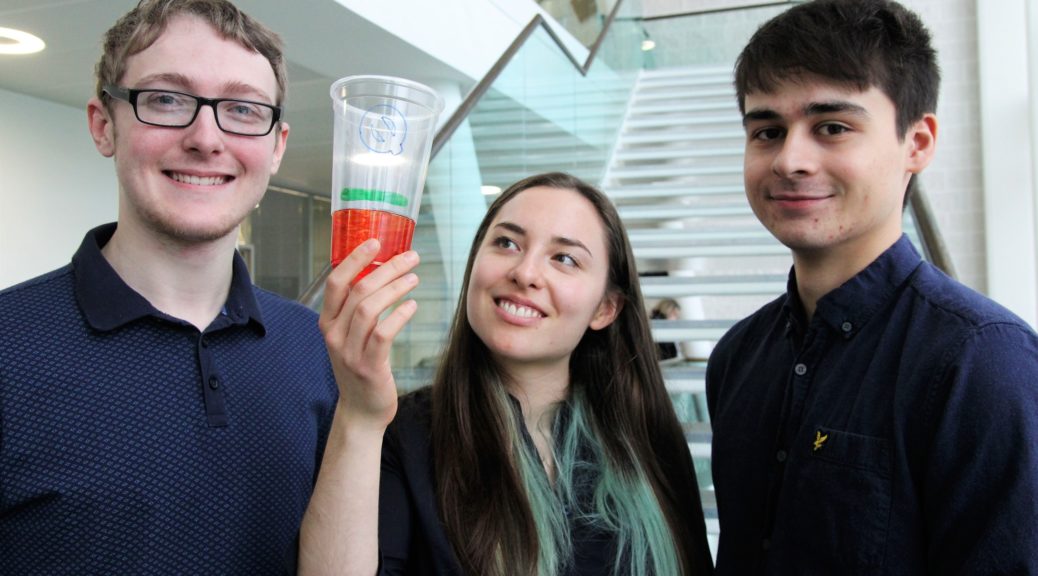

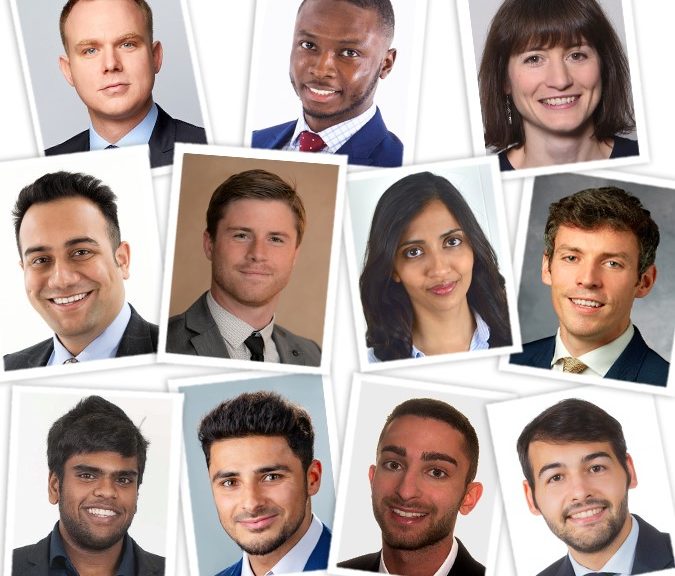

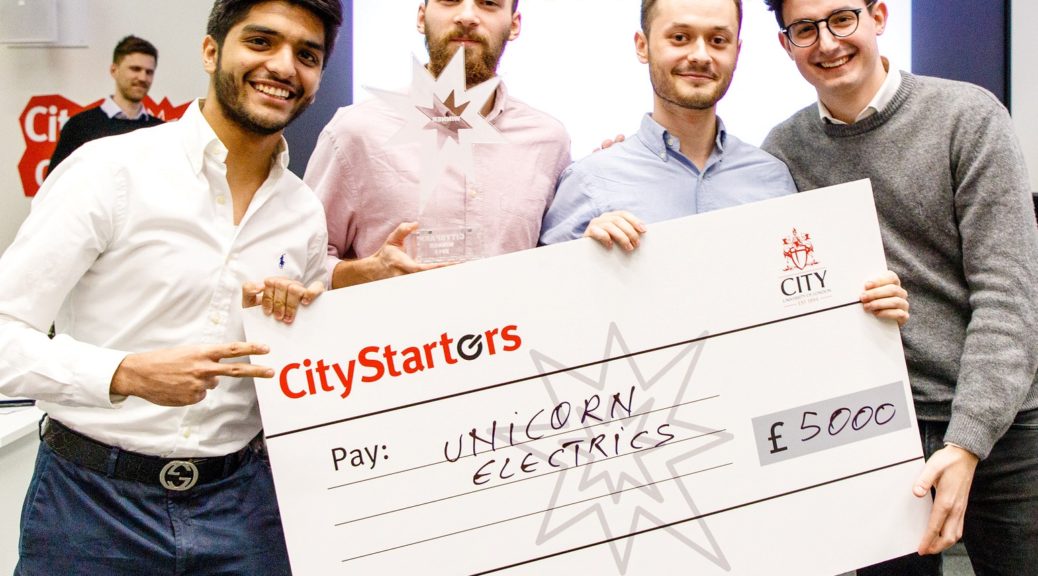


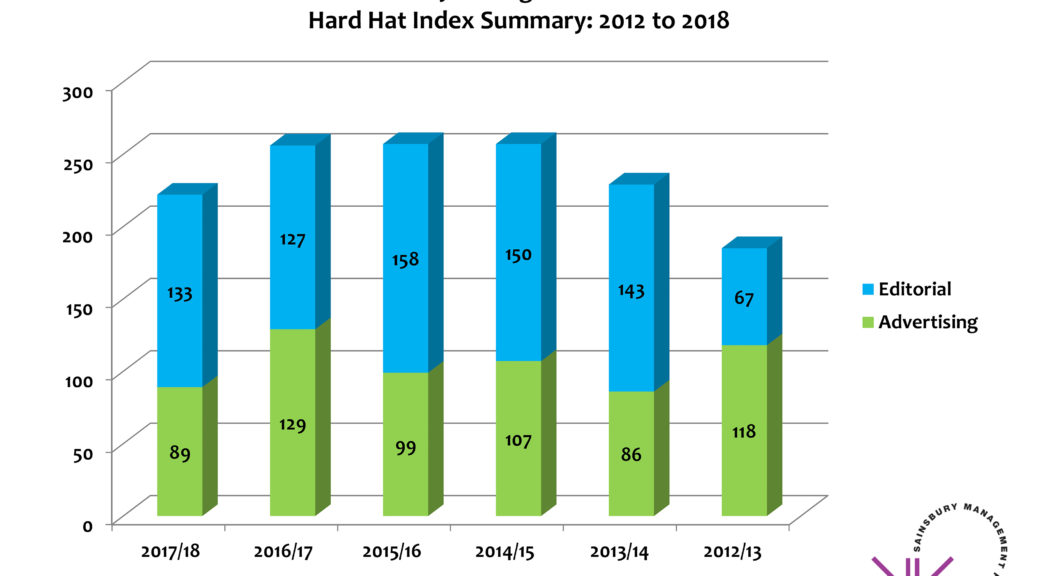

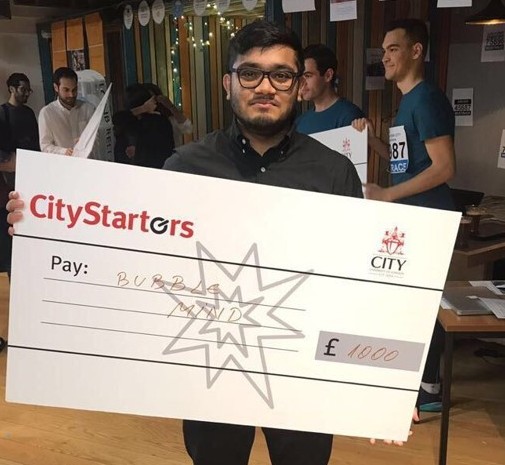


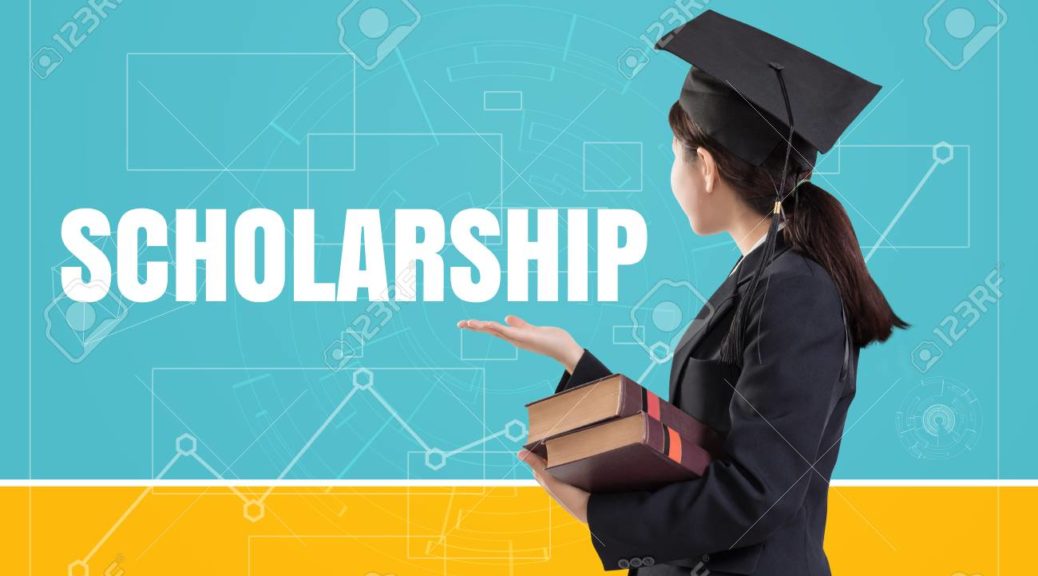

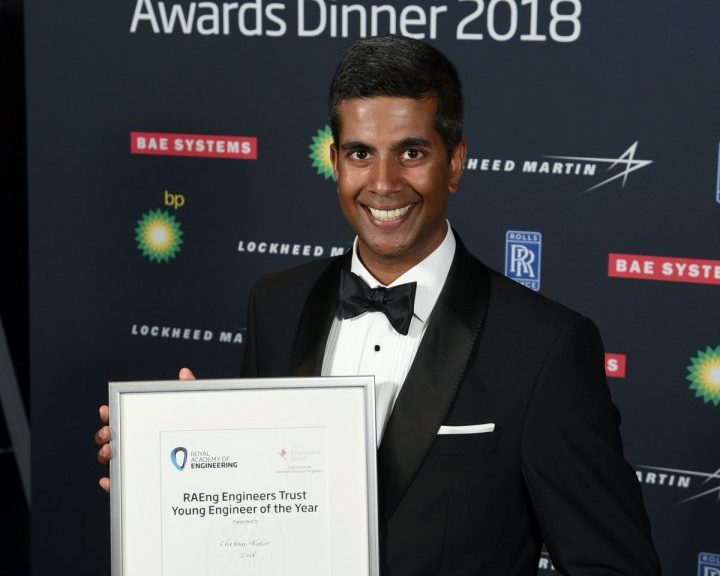

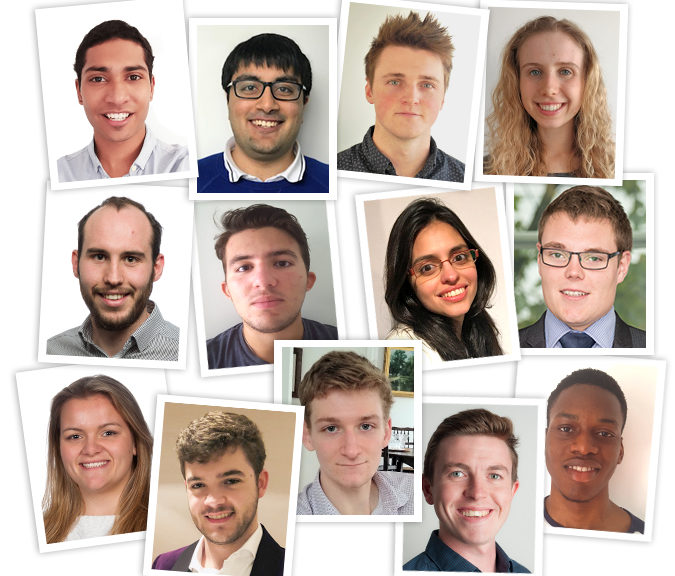


 Vivek Suresh Babu is currently a second-year undergraduate at the University of Warwick studying Manufacturing and Mechanical Engineering (predicted first class). He has secured a summer internship at Rolls-Royce in Civil Aerospace Manufacturing Engineering. He has also been nominated to study abroad in Singapore for the third year of his MEng degree. Vivek plans to use the mentoring opportunity with
Vivek Suresh Babu is currently a second-year undergraduate at the University of Warwick studying Manufacturing and Mechanical Engineering (predicted first class). He has secured a summer internship at Rolls-Royce in Civil Aerospace Manufacturing Engineering. He has also been nominated to study abroad in Singapore for the third year of his MEng degree. Vivek plans to use the mentoring opportunity with 
 Daniella Franklin is due to graduate from Loughborough University in the summer of 2018 with a degree in MEng Product Design Engineering, she is also a current participant in the International Engineering UNITECH program. She intends to use her mentoring with
Daniella Franklin is due to graduate from Loughborough University in the summer of 2018 with a degree in MEng Product Design Engineering, she is also a current participant in the International Engineering UNITECH program. She intends to use her mentoring with  Alberto Garcia Matachana is a MEng Electrical and Electronic Engineering undergraduate at Imperial College London. Alberto’s dream is to have his own company in the future. His technical knowledge is getting shaped step by step at Imperial, so he will take advantage of his mentoring with
Alberto Garcia Matachana is a MEng Electrical and Electronic Engineering undergraduate at Imperial College London. Alberto’s dream is to have his own company in the future. His technical knowledge is getting shaped step by step at Imperial, so he will take advantage of his mentoring with  Adam Honnywill is an undergraduate at the University of Bristol, studying MEng Engineering Design with Study in Industry. He looks forward to his mentoring with
Adam Honnywill is an undergraduate at the University of Bristol, studying MEng Engineering Design with Study in Industry. He looks forward to his mentoring with  Ben Kelley graduated from the University of Southampton in 2015 with a first class honours degree in MEng Civil Engineering, and is now a tunnel engineer at Ove Arup & Partners in London. He intends to use his mentoring with
Ben Kelley graduated from the University of Southampton in 2015 with a first class honours degree in MEng Civil Engineering, and is now a tunnel engineer at Ove Arup & Partners in London. He intends to use his mentoring with  Areeb Siddiqi graduated from the University of Bath in 2017 with a first class honours degree in MEng Chemical Engineering, and will be starting his PhD in Chemical Engineering in October at Bath. He intends to use his mentoring with
Areeb Siddiqi graduated from the University of Bath in 2017 with a first class honours degree in MEng Chemical Engineering, and will be starting his PhD in Chemical Engineering in October at Bath. He intends to use his mentoring with  Francesco Zeneli began studying Engineering Design at the University of Bristol in 2017. Francesco is looking forward to working with his mentor
Francesco Zeneli began studying Engineering Design at the University of Bristol in 2017. Francesco is looking forward to working with his mentor  Alan Middup graduated from the University of Sheffield with a first class honours degree in MEng Mechanical Engineering and is now a graduate trainee at Halma plc, a FTSE100 technology company. He intends to use his mentoring with
Alan Middup graduated from the University of Sheffield with a first class honours degree in MEng Mechanical Engineering and is now a graduate trainee at Halma plc, a FTSE100 technology company. He intends to use his mentoring with  Matt Parkes is a Mechanical Engineering student returning to university after a placement year at TTP in Cambridge. He is expecting to be graduating from Loughborough University in 2020 with a MEng. He is focused on finding positions in his early career in which he adds real value and working with his mentor
Matt Parkes is a Mechanical Engineering student returning to university after a placement year at TTP in Cambridge. He is expecting to be graduating from Loughborough University in 2020 with a MEng. He is focused on finding positions in his early career in which he adds real value and working with his mentor  Flavia Villarroel graduated from the University of Nottingham in 2017 with a distinction in MSc Sustainable Energy and Entrepreneurship. She also attained a BSc Civil Engineering (2006) and an MSc Geotechnical Engineering (2009), both from the Pontifical Catholic University of Rio de Janeiro. She is currently establishing a startup in the Urban Farming Sector, Super Health Foods Ltd, to gain more experience in the technologies and make the device viable in a near future. Seeking to take her passion into reality, she is hoping the mentorship with
Flavia Villarroel graduated from the University of Nottingham in 2017 with a distinction in MSc Sustainable Energy and Entrepreneurship. She also attained a BSc Civil Engineering (2006) and an MSc Geotechnical Engineering (2009), both from the Pontifical Catholic University of Rio de Janeiro. She is currently establishing a startup in the Urban Farming Sector, Super Health Foods Ltd, to gain more experience in the technologies and make the device viable in a near future. Seeking to take her passion into reality, she is hoping the mentorship with 

